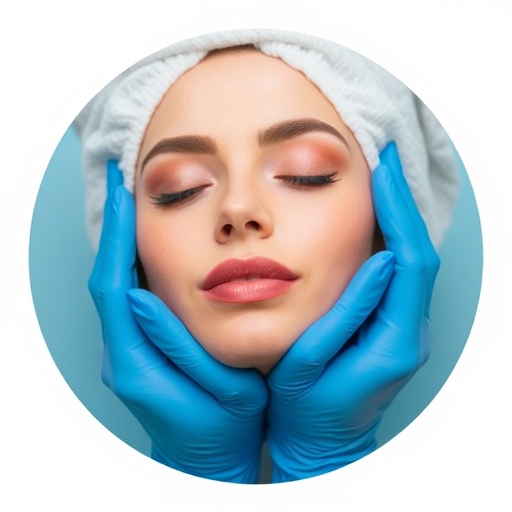Comprehensive Guide to Acne Treatment and Aftercare
Acne treatment in NJ can impact people of all ages and skin types, often affecting the face and other areas like the chest, back, and shoulders. Successful treatment usually requires a multifaceted approach that addresses the causes of acne, minimizes scarring, and promotes long-term skin health. Here's a detailed guide on acne treatments and essential aftercare tips.
- Understanding Acne and Its Causes
Acne treatment in NJ results from a combination of factors: excess oil production, clogged hair follicles, bacteria, and inflammation. It can be exacerbated by hormonal changes, diet, stress, and improper skin care. Depending on the severity, acne typically appears in blackheads, whiteheads, cysts, or pimples.
Acne Treatment Options
- Topical Treatments
- Benzoyl Peroxide: Effective for killing bacteria on the skin and reducing oil production, which helps clear mild acne.
- Salicylic Acid: Exfoliates the skin and clears clogged pores, suitable for treating blackheads and whiteheads.
- Retinoids: Derived from vitamin A, these help prevent the plugging of hair follicles and are often used for moderate to severe acne.
- Topical Antibiotics: Often combined with benzoyl peroxide to reduce inflammation and bacteria. They are typically prescribed for short-term use to avoid resistance.
- Oral Medications
- Antibiotics: Reduces bacteria and inflammation. Oral antibiotics are usually prescribed for moderate to severe acne cases.
- Oral Contraceptives: These are sometimes prescribed for women to regulate hormones and reduce acne caused by hormonal imbalances.
- Isotretinoin: A potent oral retinoid reserved for severe acne, often effective but with potential side effects that require careful monitoring by a doctor.
- In-Office Treatments
- Chemical Peels: Using acids like glycolic or salicylic acid, these peels remove the outer layer of skin, clearing clogged pores and reducing inflammation.
- Laser and Light Therapy: Targets acne-causing bacteria and reduces inflammation. Standard options include blue light therapy and laser resurfacing for scarring.
- Extraction Procedures: Performed by a dermatologist, this helps to remove large cysts or blackheads to reduce the risk of scarring.
- Steroid Injections: Used for large, painful cysts to reduce swelling and speed up healing.
- Natural Remedies
- Tea Tree Oil: Known for its antibacterial and anti-inflammatory properties, it can be effective for mild acne.
- Aloe Vera: Known for its soothing and anti-inflammatory properties, it reduces redness and irritation.
- Zinc Supplements: Can reduce acne-related inflammation; consult a doctor for correct dosages.
Aftercare Tips to Maintain Clear Skin Post-Treatment
After Acne treatment in NJ, maintaining clear skin requires consistency and attention to your skincare routine. Here are some aftercare tips to ensure long-term skin health and reduce the risk of future breakouts.
- Moisturize Regularly
- Choose a non-comedogenic moisturizer that won't clog pores. Hydrating your skin helps to maintain its natural barrier and prevents the overproduction of oil, which can lead to breakouts.
- Use Sunscreen Daily
- Protect your skin from sun exposure, especially after treatments like chemical peels or laser therapy, which can make your skin more sensitive. Look for sunscreens labelled as "oil-free" and "non-comedogenic."
- Avoid Harsh Scrubs and Exfoliants
- While exfoliating helps remove dead skin, over-exfoliating can irritate the skin and cause more acne. Stick to gentle exfoliants and use them once or twice a week.
- Maintain a Balanced Diet
- Certain foods, like those high in sugar or dairy, can trigger acne in some people. Opt for a diet rich in fruits, vegetables, lean proteins, and whole grains.
- Practice Consistent Skincare
- Keep up with a daily routine of cleansing, moisturizing, and treating any lingering acne spots. Avoid frequently changing products, as this can irritate your skin.
- Avoid Touching Your Face
- Our hands carry bacteria that can lead to breakouts. Avoid touching your face throughout the day, and always wash your hands before applying skincare products.
- Stay Hydrated
- Drinking plenty of water helps flush out toxins and keeps the skin hydrated, preventing it from overproducing oil.
- Don't Pick or Pop Acne
- Picking at acne increases the risk of scarring and can spread bacteria, leading to further breakouts. Consult a dermatologist for safe extraction if you have persistent or painful cysts.
- Follow Up with Your Dermatologist
- Regular check-ups can help adjust treatments as needed and monitor any potential side effects of medications.
Final Thoughts
Effective acne treatment requires patience and a well-rounded approach, including medical treatments and lifestyle adjustments. You can maintain clear, healthy skin even after treatment by staying consistent and attentive to your skincare routine. If you have persistent acne concerns, consult a dermatologist for a tailored treatment plan that best suits your skin type and condition. Contact us
